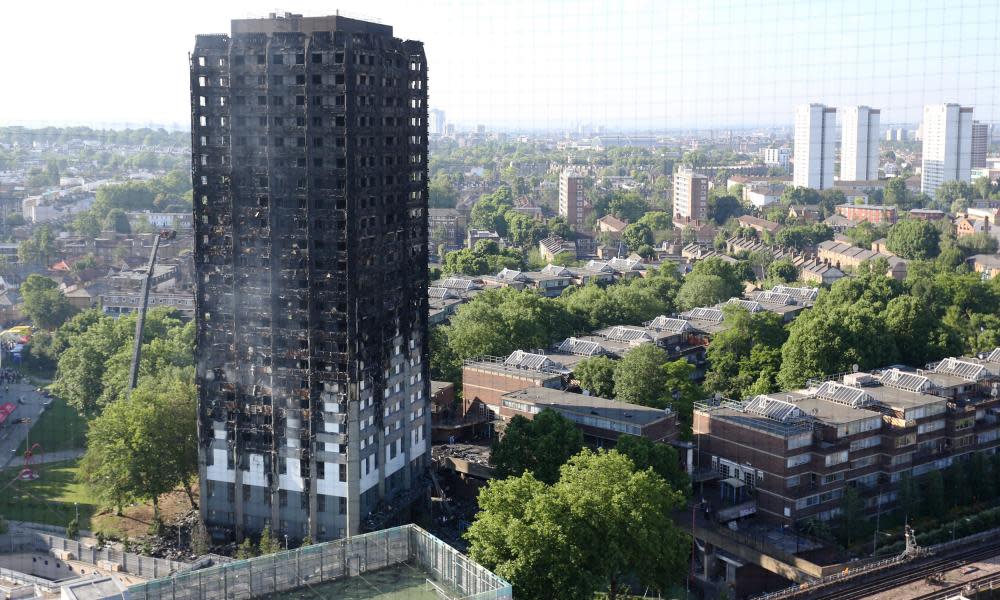The Guardian view on the Grenfell inquiry: hear the victims’ voices | Editorial

Exactly six months after the Grenfell Tower fire in which 71 people died, the first formal sessions of the inquiry begin on Monday. What happens between then and Tuesday evening in Holborn Bars, the great Victorian red brick building in the centre of London chosen to host the public hearings, is likely to be decisive in the inquiry’s success or failure. The survivors and the families of the victims are still profoundly mistrustful of the state that failed them so catastrophically on the night of 14 June. There is a great deal to be done if they are to have confidence in the inquiry’s findings.
The tragic – and, many believe, wilful – failure of central and local government to respond to tenants’ well-founded concerns about the management of their block, and the resistance at ministerial level to enacting recommendations made by an earlier inquiry into the Lakanal House fire in a similar block in south London in 2009 is only the start of the charge sheet that has so undermined confidence. The immediate response from the prime minister down to individual Kensington and Chelsea councillors was pitiable. The institutional inadequacies, newly itemised in a report by the neighbouring London borough of Hammersmith and Fulham, found a total absence of leadership. And even now, six months later, 103 families, including 29 with children, are still in emergency accommodation, waiting to be rehoused. That history alone puts an exceptional burden on the inquiry.
But it is not only the specific circumstances that require Sir Martin Moore-Bick, the inquiry chair, to look beyond the narrowly technical investigation that his background in commercial law inclines him towards. As the charity Inquest, which is coordinating the families’ legal representation, argued in its proposed terms of reference, the Human Rights Act requires a much wider response than one that is tightly focused on building regulations and inspection regimes, important though those will be. Quoting the former lord chief justice, Lord Judge, they insist that there is “a particular imperative that the community as a whole should be satisfied that, even if belatedly, the truth should emerge”. In other words, in the stark clash of cultures between the dry academic approach of the judges and lawyers, and the survivors and bereaved families’ entirely human need to bear witness, to feel ownership of the investigation, the human must prevail.
Sir Martin, whose unbending formality in the first days after his appointment came close to dooming the inquiry from the start, has worked hard to try to overcome the original mistrust. He has included a community engagement expert and a specialist in local authority competence on a panel of assessors who will advise him. He has specifically promised to consider aspects of communication and management that are likely to shine an unforgiving light onto the council’s approach. These are all important, but they are not what the families need – that is to feel that their concerns are being heard.
They want a much more diverse panel that they will feel confident can represent the different cultures, faiths and ethnicities of Grenfell residents. They want the same approach that played such an important role in restoring confidence in the Hillsborough inquest, when each of the bereaved was invited to tell the inquiry something of the person or people they had lost, placing the dead at the very centre of the process. The Human Rights Act, with its emphasis on accommodating a common need of the bereaved to feel that their loss might in some way be turned to the benefit of the wider community, demands no less.
This weekend, the Equality and Human Rights Commission announced its own inquiry, and promised to report in April. That is months ahead of any likely interim conclusions from the official investigation. It should serve as a spur to the Moore-Bick process: he must listen to the representatives of the people whose lives have been so devastated by a failure of the state. He should recognise their demand to be at the centre of his considerations. It will slow the proceedings. It will complicate them. But without it, he will not be able even to start the process of rebuilding confidence in government.

 Yahoo News
Yahoo News 
